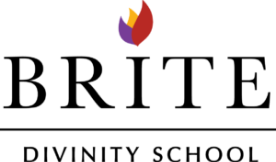STUDENT CODE OF CONDUCT
When students enter Brite Divinity School, they take upon themselves certain responsibilities and obligations, including satisfactory academic performance and social behavior consistent with the philosophy and mission of Brite. Student conduct, therefore, is not considered in isolation within the seminary community but as an integral part of the education process. All students are expected to know and abide by this code of student conduct and to hold their families and guests to this Code of Student Conduct while on TCU or Brite Divinity School premises. Academic Codes of Conduct can be found under the Academic Policies section of this handbook.
This Code of Conduct is not intended to constitute a contract, express or implied, between any applicant, student, staff, or faculty member and Brite Divinity School. The provisions of this Code of Conduct are subject to change without notice. This Code of Conduct is not intended to limit the authority, on the part of any authorized Brite Divinity School employee or staff member, or of its Dean, President, or Board to address behaviors covered under this Code of Conduct in any manner which complies with Brite’s Charter, By-laws, or any other policy or rule of Brite.
In the event a complaint is brought under this Code of Conduct, and another policy or rule of Brite Divinity School likewise may apply to the same conduct, the President may, in the President’s discretion, halt, delay, or limit proceedings under this Code, or take other appropriate action, so as to promote the efficient use of Brite resources, prevent the possibility of inconsistent results/proceedings, or prevent duplicative, unnecessary, or repetitious results/proceedings.
In addition to the expectations listed here, students are expected to abide by the Title IX policy of the institution. For procedures in response to violations of non-academic matters, see “Procedures in Response to Violations of Student Code of Conduct.”
The following are understood to be violations of the Student Code of Conduct:
Infliction of bodily or emotional harm. Infliction or threat of infliction of bodily or emotional harm, whether done intentionally or through negligence, including threat or action in retaliation for making allegations of misconduct. Assault, sexual assault, verbal harassment, sexual harassment, and stalking are some, but not all, of the behaviors prohibited. This does not preclude one’s right to freedom of speech.
Destruction of property. Actual or threatened damage to or destruction of Brite or University property or property of others, whether done intentionally or otherwise.
Weapons or dangerous devices. Use, storage, carrying, or possession of weapons or dangerous devices including, but not limited to, firearms, ammunition, martial arts devices, sling shots, air powered guns, blow guns, fireworks, or flammable liquid. Use of a weapon or threatened use of a weapon may result in immediate expulsion in addition to the filing of criminal charges.
Tampering with Safety Equipment and Arson. Use of equipment designed for safety or security in a manner inconsistent with the intended use of the equipment or intentional or unintentional use of flame or heat in a dangerous manner. Violators of this policy may also face criminal charges. This includes but is not limited to:
the activation of a smoke detector in a non-emergency situation whether done intentionally or by failure to exercise reasonable care;
discharging a fire extinguisher in a non-emergency situation;
tampering with or activating a building alarm in a non-emergency setting;
setting unapproved fires inside a building and on campus;
non-emergency or prank use of emergency telephones.
Dishonest Conduct. Dishonest conduct, including, but not limited to:
knowingly reporting a false emergency including improper use of emergency notification equipment;
knowingly making a false accusation of misconduct;
giving false testimony or providing fraudulent evidence at any disciplinary proceeding;
misuse or falsification of Brite or University documents, forms, records, or identification cards by actions such as forgery, alteration, or improper transfer;
submission, to a Brite or University official, of information known by the submitter to be false;
failure to meet financial obligations to the University or Brite, giving a worthless check, or both;
possession of a false identification card or possession of another’s identification card.
Theft/unauthorized use of property. Theft or attempted theft, or the unauthorized use or possession of, Brite or University property or services, or the property of others.
Unauthorized or abusive use of computer equipment, programs, or data. Use of computer equipment, programs, or data in a manner that violates the intended use of the equipment, the confidentiality of the information, or the integrity of the computer system’s security including, but not limited to:
unauthorized reproduction of software or use of illegally obtained software (individuals who violate U.S. copyright law and software licensing agreements may be subject to criminal or civil action by the owner of the copyright);
unauthorized use of computing resources or use of computing resources for unauthorized purposes as described in the Brite Student Handbook or in the policies of TCU (www.security.tcu.edu);
transporting copies of University programs, records or data to another person or computer site without written authorization;
providing unauthorized security passwords to another person or using another’s password or attempting to breach the security of another user’s account or deprive another user of access to the University’s computing resources;
using the University’s computing resources for personal or financial gain;
attempting to destroy or modify programs, records or data belonging to Brite or the University or another user.
Failure to comply with Brite or University authority. Failure to comply with directives of authorized Brite or University officials, identified as such, in the performance of their duties including, but not limited to, Brite Administration, TCU Administration, University police officers and other officers. Failure to comply with directives includes, but is not limited to:
failure to identify oneself when so requested
violation of a disciplinary sanction.
Alcohol. Except for certain specified areas in Divinity School residence halls approved by the President’s Office and for specific events authorized by the President in Divinity School buildings, the consumption, sale or use of alcoholic beverages is prohibited on the campus.
Drugs. Use, production, distribution, sale, or possession of drugs in a manner prohibited under state and federal law. Possession of drug paraphernalia is considered the same as possession of drugs.
Unauthorized presence. Unauthorized entrance to or presence in or on Brite or University premises. This includes unauthorized possession or use of a University key or I.D. card.
Disorderly conduct. Conduct that interferes with or obstructs Brite or University-authorized activities, including teaching, research, administration, or other activities conducted, sponsored, or permitted by Brite or the University. Disorderly conduct includes, but is not limited to:
causing a nuisance with noise by talking, yelling, singing, playing a musical instrument, a radio or stereo, etc., sufficiently loud to disturb other members of the University or Brite community;
lewd, indecent, or obscene conduct;
Violation of local, state, or federal criminal laws. Commission of conduct which, if it occurred, would violate any under federal, state, or municipal criminal law.
Violation of other published or announced Brite or University rules or regulations. Violation of other published or announced Brite or University rules or regulations including rules governing residential living, student organizations, traffic regulations, recreational activities, or athletic events.
Building Security and Community Safety
Building security. Activities that jeopardize building security for any Brite facility are expressly prohibited.
Community safety. Behaviors that endanger the well-being of any or all of the Brite community are strictly prohibited.
Academic misconduct. Any act that violates the academic integrity of Brite or the University is considered academic misconduct.
Violations of Law and University Discipline
Disciplinary proceedings may be instituted against a student charged with violation of a law which is also a violation of the Code without regard to pending civil litigation in court or criminal arrest and prosecution. Proceedings under this Code may be carried out prior to, simultaneously with, or following civil or criminal proceedings off-campus.
Violations to the Code of Conduct
Violations to the Code of Conduct will be addressed through processes found in the section on the Non- Academic Violations to the Code of Conduct. Processes for addressing violations related to Title IX are found in the Title IX policy.

